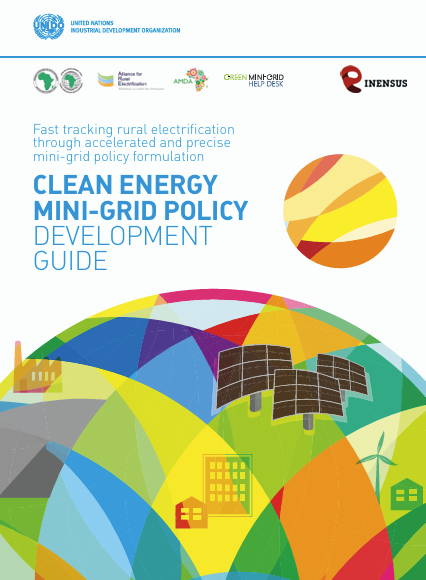Clean Energy Mini-grid Policy Development Guide
 |
Fast tracking rural electrifi cation through accelerated and precise mini-grid policy formulation
guide Mar 2021 ; 54 pages
Ed. Inensus - Goslar
Téléchargeable sous format: PdF
Téléchargeable chez l'éditeur
Abstract:
The guide incorporates lessons learnt from existing
mini-grid policies and regulations and presents the
key decisions that need to be taken by policymakers
in designing the most appropriate mini-grid frame
work for their country. A decision tree designed for
policymakers outlines which combination of key
decisions leads to which outcome. Contents:
1. Introduction to the guide 10
2. Policy development guide for decision-makers 12
2.1 Cross-cutting decisions 13
2.1.1 The utility of mini-grids – where and how to deploy 13
2.1.2 Delivery models – the degree of private sector involvement 16
2.1.3 Tariff methodologies as a balance between costs and revenues 18
2.1.4 Public funding programmes for the deployment of mini-grids based on private operator models 20
2.1.5 Sustainability of mini-grids – mitigating risk through policy design 22
2.2 Decision-making process and policy development 25
2.3 The Decision Tree 28
2.3.1 Decision Tree questions explained 28
2.4 Key takeaways 30
3. Accelerating electrifi cation through modern mini-grid regulations, procurement and
contractual arrangements 32
3.1 Procurement, tenders and grant allocation 34
3.1.1 Selecting a procurement procedure 36
3.2 Tariff regulation 38
3.2.1 Tariff vs. subsidy setting methodology 38
3.2.2Retail tariff structure 40
3.3 Licensing 42
4. Making a decision on mini-grid delivery models based on a complex holistic assessment 44
5. Conclusion and Recommendations 46
6. References 48
Mot clef: |
Editeur/Diffuseur: |
|
Inensus - Goslar - Allemagne |
En cas de lien brisé, nous le mentionner à communication@pseau.org